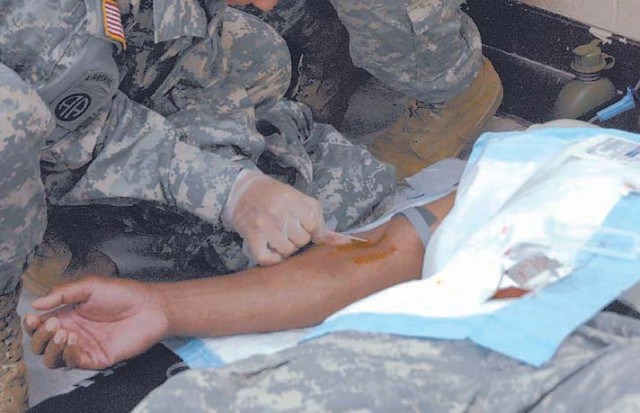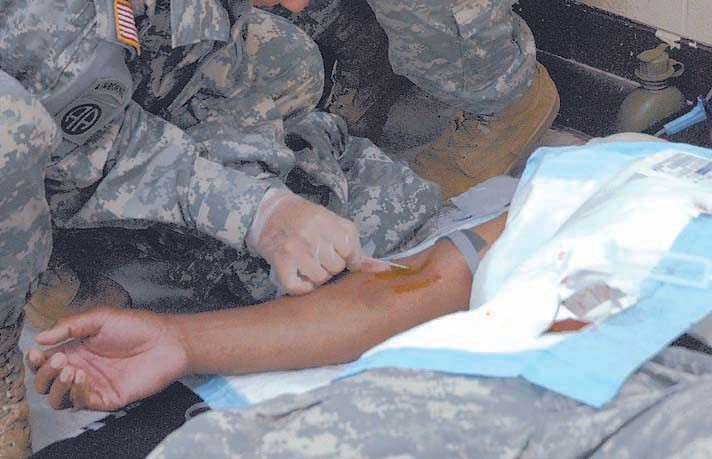FORT JACKSON, S.C. (TRADOC News Service, Sept. 13, 2007) -- The Army is about to change the way it ensures Soldiers injured on the battlefield have immediate access to life-saving techniques.
"Soldiers who were recently redeployed, and those who are currently deployed told us that the first 10 minutes are the most critical for keeping a wounded Soldier alive," said Fort Jackson's Deputy Commander Col. Kevin Shwedo.
With that in mind, beginning Oct. 1, Soldiers entering Basic Combat Training will receive Combat Lifesaving Training and be CLS certified before graduation - with an additional seven-and-a-half hours added to the current first aid training. Soldiers will learn how to perform advanced first aid and conduct potentially lifesaving procedures - control bleeding, conduct CPR and reintroduce fluids into the body - to keep a serious injury from worsening until professional medical help arrives.
"That means you are going to have to start an IV in your buddy, and your buddy is going to have to start one in you," Shwedo explained.
The deputy commander said there are two benefits to come out of the upcoming changes in training.
"One, we are training Soldiers on mission essential tasks that will keep them and their buddies alive in combat," he said. "Not only will they be able to save a life, but they will have the confidence that their buddies can do the same for them."
The second benefit is stress inoculation.
"There are very few things in life more stressful than watching a newly trained person put a catheter in your arm," Shwedo said. "Almost as stressful is introducing a catheter into your buddy's arm because you don't want to get it wrong."
Shwedo said that too often in the past it was believed introducing artificial stress into BCT prepared Soldiers for the stressors of war. He said that way of thinking was wrong, that BCT needs to be stressful, but it should be related to what you put Soldiers through in war.
"Yelling at a person at the top of your lungs for five minutes does virtually nothing. Human nature says 'I will shut you down in the first 30 seconds,' so I've just wasted the last four-and-a-half minutes of my life," said Shwedo. "Whereas, if I put a Soldier in a stressful environment that has something to do with keeping him or her alive in combat, or killing the enemy, it makes them that much more successful."
Previously, only 20 percent of Soldiers in each unit were required to be Combat Lifesaver certified.
"At the end of the day we want to make sure we have a Soldier who is proficient in a few critical tasks - weapon proficiency, discipline, being physically fit, confident he or she can save a life on the battlefield and equally confident that their buddy can save their life," Shwedo said.


Social Sharing